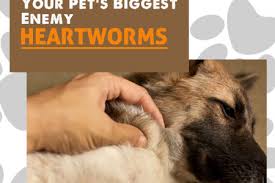Introduction
Welcome to the ultimate guide to pet care, where we embark on a journey to understand the intricacies of nurturing our beloved furry companions. For many of us, pets are not just animals; they are cherished members of our families, bringing joy, companionship, and unconditional love into our lives. Yet, with this privilege comes great responsibility. Pet care is more than just providing food and shelter; it encompasses a holistic approach to ensure the physical, mental, and emotional well-being of our furry friends.
The importance of pet care cannot be overstated, as it directly impacts the quality and longevity of our pets’ lives. Just like humans, pets require proper nutrition, regular exercise, grooming, and healthcare to thrive. By investing time and effort into caring for our pets, we not only enhance their quality of life but also strengthen the bond we share with them. Moreover, responsible pet care contributes to a healthier and happier community, reducing the burden on animal shelters and promoting responsible pet ownership.
Throughout this comprehensive guide, we will delve into various aspects of pet care, providing valuable insights and practical tips to help you become a better pet parent. From nutrition and exercise to grooming and healthcare, we will cover everything you need to know to keep your furry friend happy and healthy. Whether you are a seasoned pet owner or a first-time pet parent, this guide aims to empower you with the knowledge and resources necessary to provide the best possible care for your beloved pet. So, grab your pet’s favorite toy, cuddle up with your furry friend, and let’s embark on this enriching journey together.
Understanding Your Pet’s Needs
Understanding your pet’s specific needs is crucial for providing proper care and ensuring their well-being. Factors such as species, breed, age, and health condition play a significant role in determining these needs. By recognizing and addressing these factors, you can tailor your care approach to meet your pet’s requirements effectively.
Pets have basic needs that must be fulfilled for their overall health and happiness. These include nutrition, exercise, grooming, and mental stimulation. Each of these aspects contributes to different facets of your pet’s well-being, from physical health to emotional fulfillment. Understanding and fulfilling these basic needs are fundamental to being a responsible pet owner.
Observing and interpreting your pet’s behavior is key to understanding their needs better. Pets communicate through their behavior, and by paying attention to their actions, you can gain valuable insights into their physical and emotional state. Whether it’s a wagging tail, a content purr, or a playful bounce, learning to read your pet’s cues will help you provide the care and attention they require.
Nutrition and Diet
A balanced diet is essential for pets to maintain optimal health and vitality. Just like humans, pets require a diverse range of nutrients to support their bodily functions and maintain overall well-being. Providing a nutritionally complete diet tailored to your pet’s species, breed, age, and health status is crucial for their long-term health.
Different pets have varying dietary requirements based on their species and individual needs. Dogs, cats, birds, and small animals each have specific nutritional needs that must be met through appropriate diet choices. Understanding these requirements and selecting the right pet food is essential for ensuring your pet receives the nutrients they need to thrive.
Choosing the right pet food involves more than just picking a brand off the shelf. It requires understanding labels and ingredients to ensure the quality and nutritional value of the food. Learning to decipher pet food labels and identify key nutrients will enable you to make informed choices that support your pet’s health and well-being.
Portion control and feeding schedules are equally important aspects of pet nutrition. Overfeeding or underfeeding can lead to various health issues, including obesity and nutritional deficiencies. Establishing a feeding routine based on your pet’s age, size, and activity level will help maintain a healthy weight and prevent digestive problems.
Exercise and Physical Activity
Regular exercise is vital for pets to maintain their physical and mental health. Just like humans, pets need physical activity to stay fit, prevent obesity, and release excess energy. Engaging in regular exercise also promotes mental stimulation and helps alleviate boredom and behavioral issues.
Creating an exercise routine tailored to your pet’s needs and abilities is essential for ensuring they get the right amount of physical activity. Consider your pet’s age, breed, size, and health status when designing an exercise plan. Aim for a combination of activities that provide cardiovascular exercise, strength training, and mental stimulation.
Various forms of exercise are suitable for different types of pets. Dogs may enjoy activities such as walking, running, hiking, swimming, or playing fetch. Cats can benefit from interactive toys, climbing structures, and puzzle feeders that mimic hunting behavior. Small animals like rabbits and guinea pigs benefit from access to a large, secure enclosure with plenty of space to run and explore.
Interactive toys and games play a crucial role in providing mental stimulation for pets. Puzzle toys, treat-dispensing toys, and interactive play sessions engage your pet’s mind and prevent boredom. Incorporating these activities into your pet’s daily routine can help alleviate stress, anxiety, and destructive behavior.
Grooming and Hygiene
Grooming is an essential aspect of pet care that contributes to your pet’s overall health and well-being. Regular grooming helps keep your pet’s skin, coat, nails, and teeth in optimal condition, preventing issues such as matting, skin infections, and dental problems.
Different types of pets require different grooming routines. Dogs with long or double coats may need daily brushing to prevent tangles and mats, while short-haired breeds may only require weekly grooming. Cats benefit from regular brushing to remove loose hair and reduce the risk of hairballs. Small animals like rabbits and guinea pigs may need occasional grooming to remove loose fur and prevent matted fur.
In addition to brushing, bathing is an essential part of grooming for most pets. However, the frequency of bathing depends on your pet’s breed, coat type, and lifestyle. Over-bathing can strip your pet’s skin of natural oils and cause dryness and irritation, so it’s essential to follow a bathing schedule recommended by your veterinarian.
Nail trimming is another essential grooming task that helps prevent overgrowth, ingrown nails, and injuries. Dental care is equally important for maintaining your pet’s oral health and preventing dental disease. Regular brushing, dental chews, and professional dental cleanings can help keep your pet’s teeth and gums healthy.
Healthcare and Preventive Measures
Regular veterinary check-ups and vaccinations are crucial for ensuring your pet’s health and well-being. Veterinary visits allow your veterinarian to monitor your pet’s overall health, detect any potential issues early, and provide preventive care to keep them healthy.
It’s essential to be proactive in identifying signs of illness or injury in your pet and knowing when to seek professional help. Common signs of illness in pets include changes in appetite, energy level, behavior, and appearance. If you notice any unusual symptoms or behaviors in your pet, it’s essential to consult your veterinarian promptly.
Preventing common health issues in pets requires a combination of proper care and preventive measures. This includes maintaining a healthy diet, providing regular exercise, practicing good grooming habits, and ensuring your pet receives necessary vaccinations and parasite control.
Parasite control is an essential aspect of preventive care for pets. Fleas, ticks, worms, and other parasites can cause a variety of health problems in pets, including skin irritation, anemia, and even life-threatening diseases. Regular use of flea and tick preventatives, deworming medications, and other parasite control measures can help protect your pet from these pests.
Training and Behavior
Training is an essential part of responsible pet ownership that helps ensure good behavior and obedience in pets. Basic training techniques such as housebreaking, leash training, and commands are essential for teaching your pet how to behave appropriately in various situations.
Positive reinforcement is the most effective and humane training method for pets. Rewarding desired behaviors with praise, treats, or play encourages your pet to repeat those behaviors in the future. Avoid punishment-based techniques, as they can damage your relationship with your pet and lead to fear and aggression.
Addressing common behavioral issues in pets requires patience, consistency, and understanding. Whether it’s excessive barking, destructive chewing, or separation anxiety, identifying the underlying cause of the behavior is the first step in addressing it effectively. Consulting with a professional trainer or behaviorist can provide valuable guidance and support in managing and modifying your pet’s behavior.
Socialization is another essential aspect of training for pets, especially during their formative months. Exposing your pet to various people, animals, environments, and experiences helps them develop confidence, adaptability, and good social skills. Gradually introducing your pet to new stimuli in a positive and controlled manner can prevent fearfulness and aggression later in life.
Creating a Safe and Enriching Environment
Creating a safe and enriching environment is essential for your pet’s physical and emotional well-being. Pet-proofing your home helps prevent accidents and injuries by removing potential hazards and providing a secure environment for your pet to explore.
Eliminating potential hazards such as toxic plants, electrical cords, small objects, and household chemicals helps keep your pet safe and healthy. Securely gating off areas of your home, using childproof locks on cabinets, and keeping dangerous items out of reach are essential precautions for pet-proofing your home.
Providing mental stimulation and enrichment activities is equally important for preventing boredom and behavioral problems in pets. Interactive toys, puzzle feeders, and environmental enrichment activities such as hiding treats or creating obstacle courses engage your pet’s mind and encourage natural behaviors.
Ensuring your pet has a comfortable and secure living space is essential for their well-being. Providing appropriate bedding, shelter, and access to fresh water are basic necessities for all pets. Additionally, providing opportunities for exercise, play, and social interaction helps keep your pet physically and mentally healthy. By creating a safe and enriching environment for your pet, you can help them lead a happy, fulfilling life.





